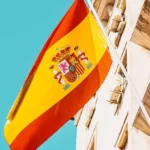There are plenty of destinations to choose from when planning your retirement. However, if you are seeking sun, sea, and security, Malta should be your first choice.
Topping several lists, the small island nation of Malta has rapidly emerged as a top-tier destination for retirees seeking safety and tranquility. Known for its idyllic Mediterranean climate, rich cultural heritage, and robust healthcare system, Malta offers an appealing blend of lifestyle benefits and peace of mind.
According to our Global Intelligence Unit’s US Retirement Trend report, Malta is widely recognized for its safety, with the US Department of State assigning it a Level 1 travel advisory, indicating that it’s among the safer destinations for travelers.
Violent crime is extremely rare in Malta, and petty crimes like pickpocketing and theft are relatively uncommon compared to larger urban centers. Malta also benefits from political stability due to its well-established democratic system, robust governance, and its membership in the European Union.
Furthermore, the police force is effective and focused on the community, which enhances the overall sense of safety – especially for retirees. Similarly, Malta has a well-developed infrastructure with reliable public services, including emergency response teams that are quick and efficient.
In terms of affordability when compared to some of the largest cities in the US, living expenses in places like Valletta are significantly lower than those in New York City. Consumer prices in New York are 59.8% higher than in Valletta when excluding rent, and this disparity widens to 110.8% when rent is included.
Specifically, renting in New York costs 225.4% more than in Valletta, reflecting the stark contrast in housing expenses. Dining out in New York is also more expensive, with restaurant prices 50.9% higher.
Groceries are also notably more expensive in New York, being 84.5% more costly. Despite these higher living costs, New York offers a substantially greater local purchasing power, 114.2% higher than Valletta, which may mitigate some of the financial strain associated with the city’s elevated expenses.
How to Retire in Malta
Malta is a welcoming destination for foreigners, offering several immigrant visa programs for non-EU citizens These programs include the Malta Permanent Residency by Investment scheme and the Malta Retirement Program.
Malta Retirement Program (MRP)
If you’re considering retirement on the island, the Malta Retirement Program (MRP) is the official route in the country. It offers an exclusive opportunity for EU, EEA, Swiss, and non-EU nationals to secure a residence permit for retirement in Malta.
To qualify for the MRP, the primary applicant must:
- Be at least fifty-five years old
- Be in receipt of a pension income, of which at least 75 percent is remitted to Malta
- Own or be leasing a property in Malta
- Have health insurance
The requirements include prerequisites such as owning a property of a minimum value, leasing a property with a minimum rent, and holding no other visas obtained through a residence program.
Malta Permanent Residence Program
Another option is the Malta Permanent Residence Program (MPRP), a residency by investment scheme enabling foreign nationals to obtain a renewable Maltese permanent residence permit.
This is ideal for retirees seeking to make a permanent move to Malta but not seeking citizenship. The residence permit program is based on real estate investment, which can take the form of a purchase or a five-year lease agreement.
For properties in Southern Malta and Gozo, the minimum purchase price is €300,000 (€350,000 for the rest of Malta), while for a five-year lease, the minimum annual rent is €10,000 (€12,000 for the rest of Malta). The program is selective, and real estate investors must fulfill eligibility criteria to gain a permanent residence permit.
How Can Global Citizen Solutions Help You?
Global Citizen Solutions is a boutique migration consultancy firm with years of experience delivering bespoke residence and citizenship by investment solutions for international families. With offices worldwide and an experienced, hands-on team, we have helped hundreds of clients worldwide acquire citizenship, residence visas, or homes while diversifying their portfolios with robust investments.
We guide you from start to finish, taking you beyond your citizenship or residency by investment application.

Frequently Asked Questions About Retiring in Malta
What are the residency requirements for retirees in Malta?
Citizens of EU and EEA countries who are retired can live in Malta without needing a visa. However, if they plan to stay for longer than three months, they must register as residents. Non-EU citizens have the option to apply for the Malta Retirement Programme, which provides a special tax status for retirees. To qualify for this program, applicants must be at least 55 years old, own or rent property in Malta, and have enough income to support themselves. Additionally, they must have health insurance coverage and meet the requirement of paying a minimum annual tax of €7,500, along with an additional €500 for each dependent.
How is the healthcare system in Malta for retirees?
Malta has a high-quality healthcare system, which is ranked among the best in Europe. Both public and private healthcare services are available, with public healthcare accessible to residents through the state health insurance system. Many expats choose to have private health insurance in addition to public services to ensure faster access to specialists and private hospitals. The standard of care is excellent, with many medical professionals trained in the UK or other Western countries.
What is the cost of living in Malta for retirees?
The cost of living in Malta is generally lower than in many Western European countries, but it can vary depending on lifestyle and location. Housing costs, whether renting or buying, are the most significant expense, with prices being higher in popular areas like Sliema and Valletta. Groceries, dining out, and utilities are reasonably priced, while public transportation is affordable and efficient. Overall, a comfortable retirement in Malta can be achieved with a moderate budget, although it is advisable to have a good understanding of expenses before making the move.
What are the tax implications for retirees in Malta?
Malta provides retirees, including non-EU citizens, with favorable tax conditions through the Malta Retirement Programme. Under this program, pension income sent to Malta is taxed at a flat rate of 15%, with a minimum annual tax payment required. Retirees also benefit from the absence of wealth or inheritance taxes. Additionally, double taxation treaties between Malta and various countries prevent retirees from being taxed twice on their income.
What is the lifestyle like for retirees in Malta?
Retirees in Malta can enjoy a relaxed and enjoyable lifestyle thanks to the warm Mediterranean climate, rich cultural heritage, and vibrant community life. There are plenty of outdoor activities to indulge in, such as sailing, hiking, and exploring historical sites. The island boasts a lively social scene with numerous festivals, cultural events, and expat groups, making it easy for retirees to meet new people and build a social network. English is widely spoken, which makes it easy for retirees to navigate daily life and integrate into the community. The slower pace of life and friendly locals contribute to a high quality of life for retirees in Malta.


